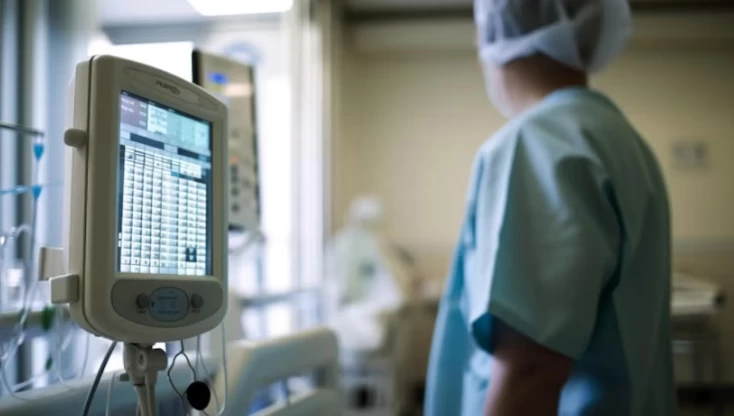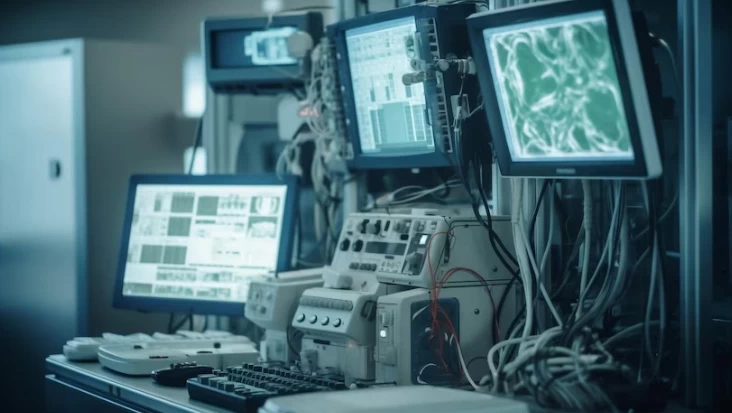
Importance of Monitoring Chronic Diseases After Surgery
- Importance of Monitoring Chronic Diseases After Surgery
- Importance of Monitoring Chronic Diseases After Surgery
- Common Examples of Chronic Diseases After Surgery
- The Post-Surgery Chronic Disease Monitoring Process
- Conclusion and Recommendations
Importance of Monitoring Chronic Diseases After Surgery
Monitoring chronic diseases after surgery is crucial for preserving patients' health, preventing complications, and improving their quality of life. Here are some key reasons why monitoring chronic diseases after surgery is important:
- Early Detection of Complications: The post-surgery period can introduce changes and stressors to the body that may affect the course of chronic diseases and increase the risk of complications. Regular monitoring helps identify potential complications at an early stage.
- Adjustments in Treatment: Patients' treatment needs may change after surgery. Particularly in individuals with chronic diseases, medication dosages, treatment methods, or lifestyle recommendations may need to be adjusted to match the post-surgery period.
- Improving Health Status: The impact of surgery on the body can influence the course of chronic diseases. Regular follow-up and interventions post-surgery can contribute to improving the patient's health status and reducing disease symptoms.
- Enhancing Quality of Life: Chronic diseases can negatively affect a patient's quality of life. Post-surgery monitoring and management can help control symptoms, ultimately enhancing the quality of life.
- Patient Safety: The post-surgery period may pose potential risks to patients. Regular follow-up is essential to ensure patient safety and minimize potential dangers.
- Supporting the Recovery Process: Monitoring chronic diseases after surgery supports the patient's recovery process. Regular check-ups and necessary interventions can expedite post-surgery recovery.
- Cost Reduction: Preventing or early detecting post-surgery complications can reduce the need for hospital readmissions, ultimately helping control healthcare costs.
- Importance of a Multidisciplinary Approach: Monitoring chronic diseases after surgery may require collaboration among various healthcare professionals. This approach ensures the effective management of the patient's diverse healthcare needs.
Monitoring chronic diseases after surgery is a fundamental strategy for optimizing patients' health, minimizing complications, and improving their overall quality of life. Therefore, regular patient follow-up and timely interventions contribute to successfully managing the post-surgery period.
Common Examples of Chronic Diseases After Surgery
- Diabetes: Surgical interventions can impact diabetes management. Monitoring post-surgery blood sugar levels and adjusting diabetes treatment may be necessary.
- Hypertension: Post-surgery blood pressure control is vital. Blood pressure levels should be monitored, and treatment plans adjusted if blood pressure rises or falls after surgery.
- Heart Diseases: Heart conditions require close attention after surgery. Evaluating heart function through tests such as EKG and echocardiography can be essential.
- Obstructive Lung Diseases: Post-surgery respiratory functions should be closely monitored. Patients who smoke may be at higher risk of post-surgery lung complications.

The Post-Surgery Chronic Disease Monitoring Process
- Initial Assessment: Patients should undergo initial evaluation shortly after surgery to establish a baseline for their post-surgery condition.
- Laboratory Tests: Blood tests are used to monitor kidney function, liver function, electrolyte levels, and blood sugar levels during the post-surgery period.
- Imaging Tests: X-rays, ultrasounds, and other imaging methods can be used to assess post-surgery recovery and potential complications.
- Medication Management: After surgery, new medications may be added, and existing medications may require dosage adjustments based on the patient's overall health and the course of their chronic diseases.
- Diet and Lifestyle Changes: Dietary and lifestyle changes are crucial for managing chronic diseases. Collaborating with nutrition specialists to review patients' dietary habits is essential.
Conclusion and Recommendations
Monitoring chronic diseases after surgery is a critical step for optimizing patients' health, minimizing complications, and improving their quality of life. General surgeons ensure that patients are regularly monitored, assess their health through laboratory and imaging tests, and intervene as needed, such as adjusting medications or providing dietary and lifestyle recommendations. This approach minimizes the impact of chronic diseases after surgery, ultimately leading to improved patient outcomes.






